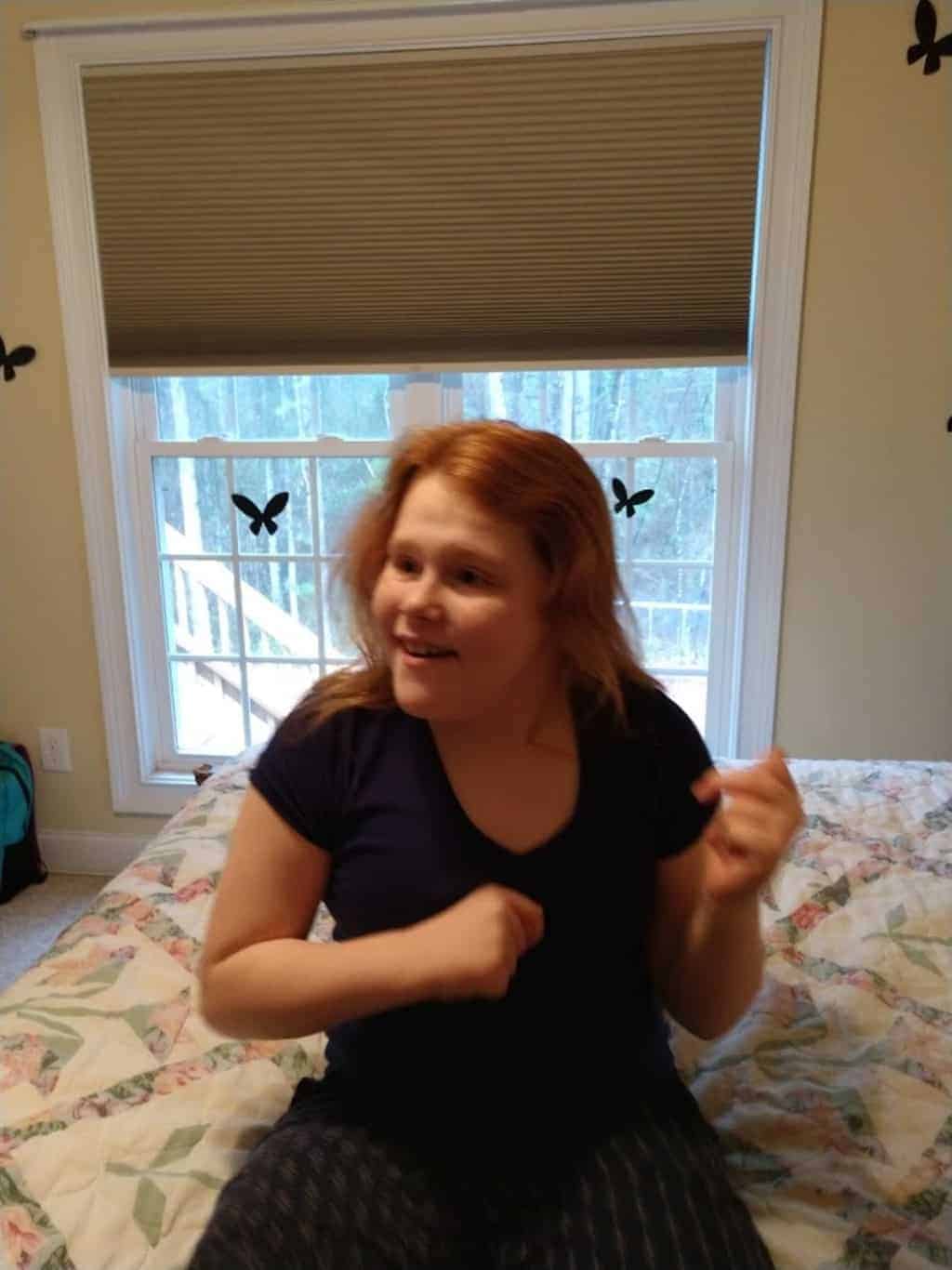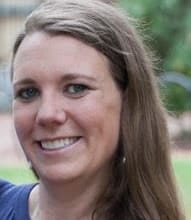Adison Cole has no shortage of challenges in her life.
The 10-year-old Moore County girl, whose early years were spent in and out of foster homes, has diagnoses of both autism and developmental delays. She is non-verbal as well, and frustrations with communication can turn into meltdowns where she or others can end up harmed.
Her grandmother and caretaker Donna Dworak has spent three years trying to get the local Medicaid behavioral health care provider, the Sandhills Center, to enroll Adison in specialized behavioral therapies to help her navigate life better.


Her efforts have gone nowhere. At one point, Dworak, who has custody of Adison and her two brothers, looked into paying for the services herself but could not begin to afford the $300 hourly rate quoted to her for the intensive therapies that can be 10 to 40 hours a week.
“It’s extremely frustrating for me but it’s horrible for Adison,” said Dworak about the lack of therapies. “She needs these services.”
The years-long wait for ABA therapies comes despite federal rules and the state’s obligation to ensure those on Medicaid have timely access to medically necessary services. Medicaid is the system for low-income seniors, children and disabled persons that’s paid for by a combination of state and federal funds.
Anthony Ward, chief operating officer for the Sandhills Center, declined to comment on Adison’s situation or offer an explanation of why her wait has been so long. But he did say that those on Medicaid should be getting help when they need it.
In Adison’s case, it appears more than a provider shortage was in the way of her getting help, with officials unaware people were waiting months or longer for help until an N.C. Health News reporter informed them of it.
Sandhills’ records show it paid for ABA services for just 13 people in the 2016 and 2017 fiscal years, for an area including well-populated communities like Greensboro and Sanford, as well as more rural areas in Anson, Harnett, Hoke, Lee, Montgomery, Moore, Randolph, Richmond and Guilford counties.
The main Medicaid-approved ABA provider in the Sandhills area, Community Connections, maintained a waitlist of at least 60 to 90 days, unbeknownst to top Sandhills officials who previously said everyone who needed services was getting them.
“They created a waitlist that we were unaware of,” Ward said about Community Connections, which maintains offices in Fayetteville and Raleigh.
Need across the state
Advocates for the disabled and those with autism say that Adison is not the only child with autism waiting for ABA services in North Carolina, where one out of every 57 people are diagnosed with the brain disorder that can manifest as difficulties with social interaction and communication as well as repetitive behaviors.
Disability Rights North Carolina has heard from a dozen families across the state reporting waits of several months or more. They think the true numbers of those affected is much higher, as all families facing delays may not have reached out – for whatever reason – to autism or disability rights groups for help.
Officials at the N.C. Department of Health and Human Services, which manages the state’s Medicaid program, are adamant that there are no waitlists for ABA services, but also acknowledge the demand for the early intervention services eclipses the pool of providers in the state.
It is not an ideal situation, with a statewide shortage of the certified therapists who can deliver the specialized, time-intensive therapies, said Dave Richard, N.C. DHHS’ deputy secretary who oversees the state’s $14 billion Medicaid system and N.C. Health Choice programs.
“It’s something we will pay for,” Richard said. He added, “clearly, we don’t want families waiting for a year.”
The reasons families in the autism community are having trouble getting ABA services through Medicaid are compound and complex.
North Carolina has a shortage of the highly-educated professionals that can develop and oversee the therapies, with just 327 board-certified behavioral analysts (BCBAs) in North Carolina, according to the Behavior Analyst Certification Board. BCBAs must have a masters-level education, undergo extensive training, and pass rigorous board exams to receive their certification. While the BCBAs create treatment plans, mostly registered technicians carry out the day-to-day work of implementing that plan for the child with autism. North Carolina has just 812 of these registered behavioral technicians.
Demand for service has also rapidly increased, with many insurance and health care providers only agreeing to cover the services in recent years. Medicaid added ABA therapies to its lists of covered service in 2014, and the state has not yet built up the capacity to serve the growing need, Richard said.
A previous N.C. Health News article looked at the challenges in the private insurance marketplace, with many in North Carolina on employer-provided plans unable to get the therapies despite a coverage mandate signed into law in 2015. Nor can families looking for coverage buy their own insurance with coverage, after language in that legislation which precluded ABA coverage from being included in plans sold on the open marketplace. Many have dug into their own pockets, spending tens of thousands of dollars.
Disability rights advocates say, regardless of the challenges, more still needs to be done, with fault lying at the feet of both the N.C. Department of Health and Human Services and the seven regional state-funded mental health management agencies (known as LME/MCOs) that are paid by the state to provide Medicaid behavioral health services.
“There’s no excuse for this,” said Lisa Nesbitt, an attorney with Disability Rights North Carolina.
Contracts the LME/MCOs have with the state require them to provide an “adequate provider network,” something that Nesbitt says is not happening when it comes to ABA therapies.
“They’ve known about this since 2014,” she said, referring to the date of a federal directive to cover ABA therapies. “You must cover this.”
Nesbitt is frustrated hearing about the delays and wonders if the high cost of providing ABA therapy, which can require hours of therapy each week, is what’s kept some LME/MCOs from adding more providers to their rosters.
“There are lots of providers, you just need to figure out how to get them in the networks,” Nesbitt said. “Stop giving these parents and families the runaround.”
An uptick in need
The use of ABA therapies for those with autism has increased dramatically in recent years and been hailed as a way to help children and families improve their qualities of life in both the short term and long term.
ABA therapies can help children overcome barriers in their everyday life, including learning how to tolerate hygienic routines such as using the toilet or teeth brushing, which can overwhelm some children with sensory issues, said Barb Agnello, the clinical director for care coordination at Cardinal Innovations. Agnello is also a board-certified behavioral analyst at the doctoral level who has worked with the autism community in three states.
Through ABA, patients can diminish self-harming behavior such as head-banging or other outbursts triggered by sensory issues. Or, it could help prepare children with autism with ways to handle distractions in schools and be able to take tests without shutting down.
In some cases, the behavioral advances can keep a family together.
“It can be the difference of someone being able to live at home and not live at home,” Agnello said.
Cardinal is constantly looking for new ABA providers for its members, even trying to recruit the masters-prepared therapists and companies in other states to come to North Carolina and open up clinics, she said.
The main barrier to recruitment has been because of North Carolina’s requirement that a psychologist oversees ABA therapies, a practice unique to North Carolina, said Lorri Unumb, Autism Speaks’ vice president for state government affairs.
Many BCBAs have undergone intensive training and find the oversight unnecessary and time consuming, Unumb said. It is also difficult to find psychologists who want to do that type of work.
Autism Speaks and other groups are pushing to have the state legislature remove the psychologist oversight, in hopes it will lead to more ABA providers.
“Until that issue gets fixed, you’re never going to have good access” to ABA therapies, Unumb said.
Richard, the DHHS deputy secretary, also points to psychologist oversight as the main barrier to help.
“We know that it will take time to build up that provider network,” he said.
Waitlist existed, without officials’ knowledge
In the Sandhills area, the LME/MCO has brought on another provider since learning in early April of the waitlist and plans on closely tracking the requests and approvals for ABA therapies going forward, Ward said.
But Adison has yet to get her help.
Dworak heard last week through her Sandhills caseworker that Community Connections will not be able to evaluate Adison until June, adding to the wait that has already gone on for three years.
Dworak’s upset that so much time has gone by, during a period in which Adison has struggled significantly.
She’s had behavioral problems at school, with teachers frequently needing to restrain her to keep her from harming herself. She also spent a year waiting for a replacement of her Medicaid-provided communication device after it broke, leaving her with no way to communicate her needs and without ABA therapies to help her cope with her environment, Dworak said.
“We’ve lost at least two years,” Dworak said.
She is frustrated but said she won’t stop fighting until Adison gets the help she needs.



